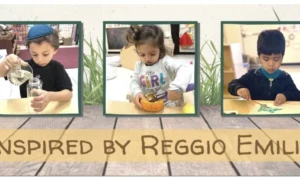Choosing the right early education approach for your child is a crucial decision that sets the foundation for their future learning experiences. Among the various options available, Montessori and Lower Kindergarten (LKG) are two popular approaches, each with its unique philosophy and methodology. In this article, we’ll explore the key differences between Montessori and LKG, helping parents make informed decisions about their child’s educational journey.
Philosophy and Approach:
- Montessori: Montessori education follows the philosophy developed by Dr. Maria Montessori, emphasizing a child-centered approach that values independence, self-directed learning, and hands-on activities. The classroom is designed to foster a child’s natural curiosity and exploration.
- LKG (Lower Kindergarten): LKG, on the other hand, is a conventional early education system that often follows a structured curriculum. It focuses on introducing foundational concepts in a more structured manner, preparing children for the transition to formal schooling.
Learning Environment:
- Montessori: Montessori classrooms are known for their carefully prepared environments that encourage freedom of movement and choice. Children have access to a wide range of Montessori materials, designed to develop specific skills and concepts at their own pace.
- LKG: Lower Kindergarten classrooms typically have a more traditional setup, with desks, chairs, and a teacher-led approach. Learning activities are often organized in a group setting, and there may be a more formal structure to the daily routine.
Teacher’s Role:
- Montessori: Montessori teachers, often referred to as guides, act as facilitators in the learning process. They observe each child’s interests and progress, guiding them towards activities that align with their developmental stage.
- LKG: In LKG, teachers play a more directive role, leading lessons and providing instruction to the entire class. The focus is on delivering a structured curriculum that introduces children to fundamental concepts in various subjects.
Age Group:
- Montessori: Montessori education is commonly available for children aged 2.5 to 6 years, covering the preschool and kindergarten years. However, some Montessori schools may extend their programs to include elementary education.
- LKG: Lower Kindergarten is typically designed for children aged 3 to 4 years, acting as a precursor to formal schooling. LKG marks the beginning of the standardized educational system in many countries.
Assessment and Evaluation:
- Montessori: Montessori education focuses less on formal assessments and grades, placing greater emphasis on the child’s overall development, social skills, and ability to explore and learn independently.
- LKG: LKG often involves more structured assessments and evaluations, with a focus on measuring a child’s progress in specific subjects and readiness for the next academic level.
Conclusion:
Understanding the fundamental differences between Montessori and LKG is essential for parents seeking the best fit for their child’s early education. While Montessori emphasizes independence and self-directed learning, LKG provides a more structured and teacher-led approach. Ultimately, the choice between these approaches should align with your child’s learning style, developmental needs, and your educational philosophy.












































